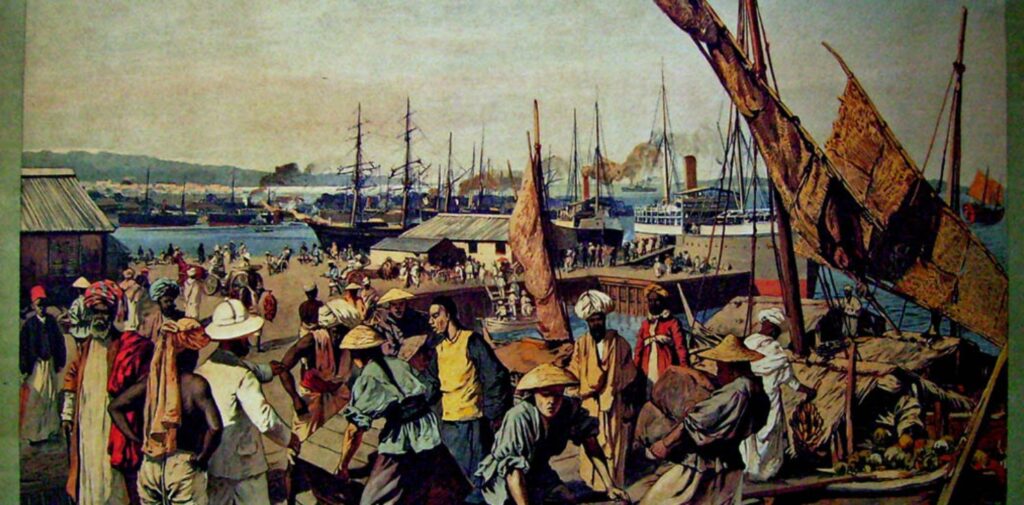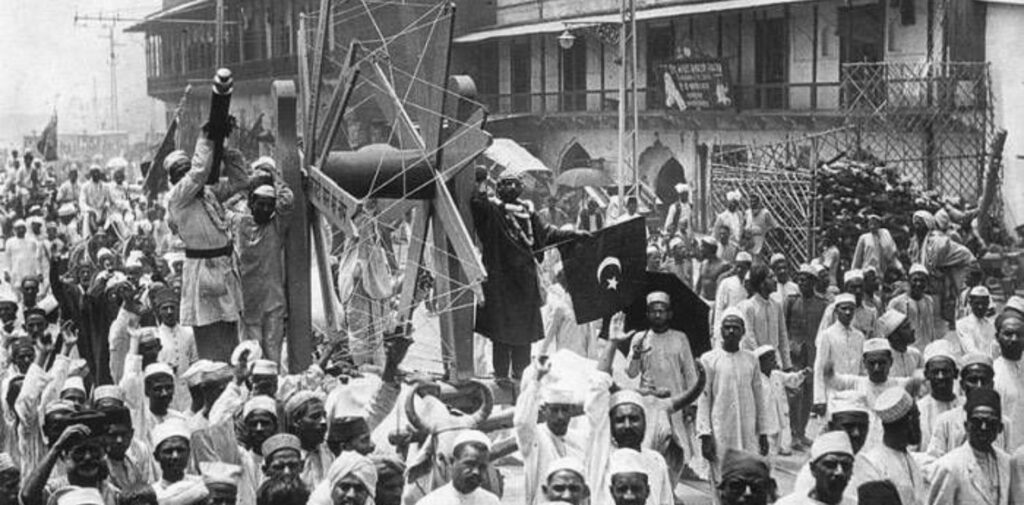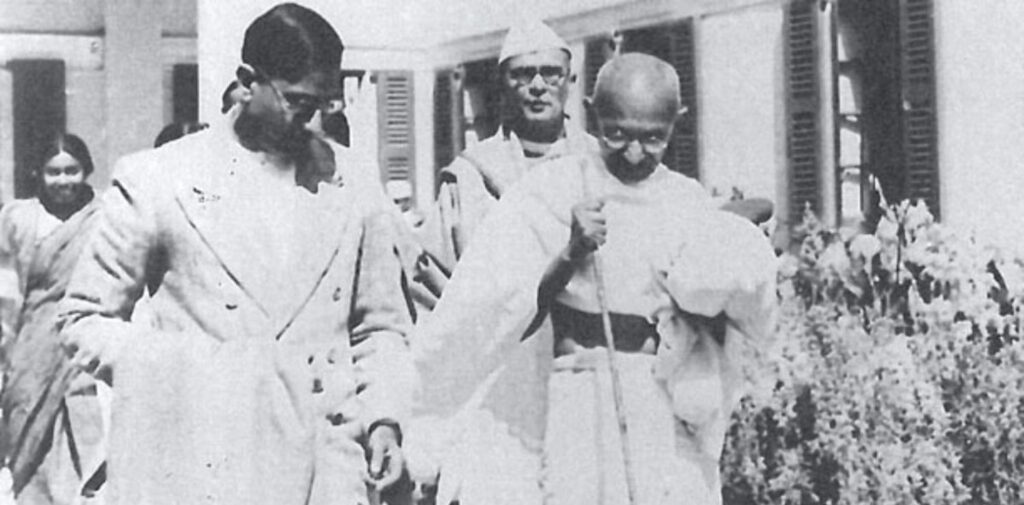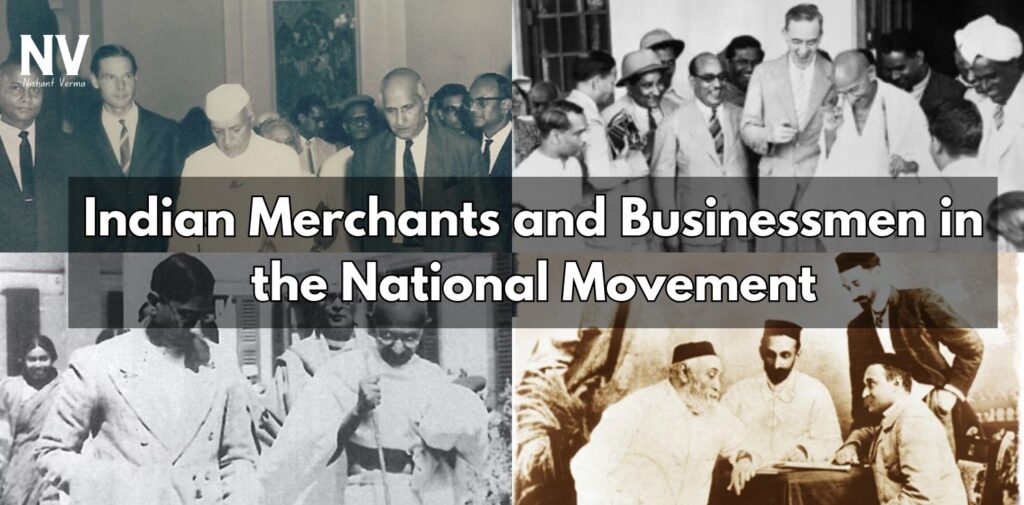The Indian National Movement is often remembered for the role played by political leaders like Mahatma Gandhi, Jawaharlal Nehru, and Subhas Chandra Bose. However, a key part of this struggle for independence was the contribution of Indian merchants and businessmen. These individuals, often from the business class, played an important role in supporting and driving the national movement forward. From providing financial backing to leading boycotts against British goods, Indian merchants and businessmen actively participated in the freedom struggle. In this article, we will explore the crucial role played by Indian traders and industrialists in the independence movement and how their contributions helped shape India’s journey to freedom.
Importance of Merchants and Businessmen in Colonial India
During British colonial rule, India’s economy was primarily structured to benefit the British Empire. Indian merchants and businessmen faced several challenges under British policies. British control over trade and industry meant that Indian businessmen were largely restricted to dealing in raw materials while finished goods were imported from Britain. This system resulted in the exploitation of India’s resources and left the local business community in a disadvantaged position.
The British policies not only hurt Indian merchants financially but also led to widespread resentment. The business community in India began to realize that political freedom was essential for their economic survival. They saw that independence would allow them to regain control of their industries, reduce foreign influence, and boost economic growth in India. It was this realization that led Indian merchants and businessmen to become active participants in the national movement.

Role of Indian Merchants and Businessmen in the National Movement
Financial Support for the Movement
One of the most significant contributions made by Indian businessmen to the national movement was financial support. Many merchants and business leaders understood that the movement required money to fund protests, boycotts, and the publication of nationalistic literature. Businessmen like G.D. Birla, Jamsetji Tata, and Lala Lajpat Rai provided substantial financial backing to the Indian National Congress (INC) and other nationalist organizations.
G.D. Birla, for example, was a prominent industrialist and a supporter of Mahatma Gandhi. He not only provided financial support to Gandhi’s movements but also helped fund the publication of newspapers that spread the message of freedom and self-reliance.
Similarly, Jamsetji Tata, a visionary industrialist, believed that India could only grow if it had an independent economy. Tata’s business ventures, including Tata Steel, were part of a broader vision for an industrialized India. He also supported various initiatives that aligned with the nationalist cause, including contributing to the development of educational institutions.
Support for the Swadeshi Movement
The Swadeshi Movement, launched in response to the partition of Bengal in 1905, became a major turning point in the Indian National Movement. The idea of using Indian-made goods instead of British goods gained momentum during this period. Indian merchants and businessmen actively supported the Swadeshi Movement by promoting the use of locally made products and organizing protests against British goods.
Merchants, especially those in the textile industry, encouraged people to stop buying British products. The movement led to the establishment of Indian-run factories and industries. Lala Lajpat Rai, one of the key leaders of the Swadeshi Movement, was also a successful businessman and played an important role in promoting Indian goods and industries.
The Swadeshi Movement not only boosted Indian business but also brought together a wide section of society, including merchants and industrialists, who worked together to challenge British economic policies. Businessmen realized that supporting the boycott of foreign goods would help India become economically self-sufficient and reduce dependence on British imports.

Establishment of Indian-Owned Industries
A key aspect of the nationalist movement was the push for self-reliance in industries and commerce. Indian merchants and industrialists began to invest in industries to replace British-owned enterprises, especially in sectors such as textiles, steel, and chemicals. The establishment of industries like Tata Steel and The Birla Group played an important role in the economic development of India. These companies were not just business ventures; they were seen as symbols of India’s potential to stand on its own feet without British control.
The development of these industries also created jobs for Indians and helped build infrastructure, including transportation and communication networks. Many Indian businessmen saw their investment in industries as a way of strengthening the national movement by providing economic power to the people.
The Role of Indian Businessmen in Organizing Protests
Indian businessmen, especially from urban areas, played a key role in organizing protests against British rule. They often used their social and economic influence to gather people and organize activities. For example, G.D. Birla was deeply involved in organizing protests and supporting Mahatma Gandhi’s movements, including the Non-Cooperation Movement and the Salt March.
Businessmen who had the resources and connections in their local communities helped in spreading the message of independence. Many of them mobilized workers in their factories, encouraging them to participate in strikes and protests. This involvement helped strengthen the overall national movement and created a widespread sense of unity and purpose.
Opposition to British Economic Policies
British colonial policies in India were often designed to benefit British interests, often at the expense of Indian merchants and businesses. Indian merchants, especially those in the trading and manufacturing sectors, were severely affected by high taxes, import restrictions, and monopolistic practices. As the national movement gained strength, businessmen increasingly began to speak out against these policies.
For example, the Indian National Congress and other political organizations began to campaign against unfair taxes and tariffs that hurt Indian industries. Indian merchants, alongside political leaders, organized campaigns to demand reforms in trade policies, including the removal of tariffs on Indian goods and the abolition of the salt tax.

Indian Businessmen and Their Support for Gandhi’s Movements
Mahatma Gandhi’s approach to the independence struggle was unique in that it focused not only on political resistance but also on economic self-sufficiency through movements like Swadeshi and Khadi. Gandhi called for Indians to produce their own clothes, particularly through the spinning of khadi (handspun cloth). Merchants and businessmen supported this cause by promoting the use of khadi and investing in local textile production.
Several businessmen like G.D. Birla and Ratan Tata believed in the principles of self-reliance and supported Gandhi’s emphasis on economic independence. Businessmen also supported Gandhi’s idea of using non-violent methods to achieve political goals, which gave the movement a moral high ground and attracted a broad section of Indian society.
Legacy of Indian Merchants and Businessmen in Post-Independence India
After India gained independence in 1947, the contributions of businessmen and merchants in the national movement did not go unnoticed. Many of the industrialists who supported the independence struggle continued to play vital roles in shaping India’s post-independence economy.
For instance, G.D. Birla became one of the most influential business figures in post-independence India. The Birla Group of companies became key players in the industrial development of the country. Similarly, Jamsetji Tata’s vision of industrial self-sufficiency paved the way for the establishment of major Indian corporations that would contribute significantly to India’s economy.
Conclusion
The role of Indian merchants and businessmen in the national movement was crucial for both the economic and political struggle for independence. Their financial contributions, support for the Swadeshi Movement, promotion of Indian industries, and opposition to British economic policies helped propel the movement forward. These businessmen not only believed in the political ideals of freedom but also understood that economic independence was just as important. Through their participation in protests, their investment in industries, and their support for Mahatma Gandhi’s vision of self-reliance, Indian merchants and businessmen made lasting contributions to the independence movement. Their efforts helped lay the foundation for a self-sufficient and prosperous India post-independence.




